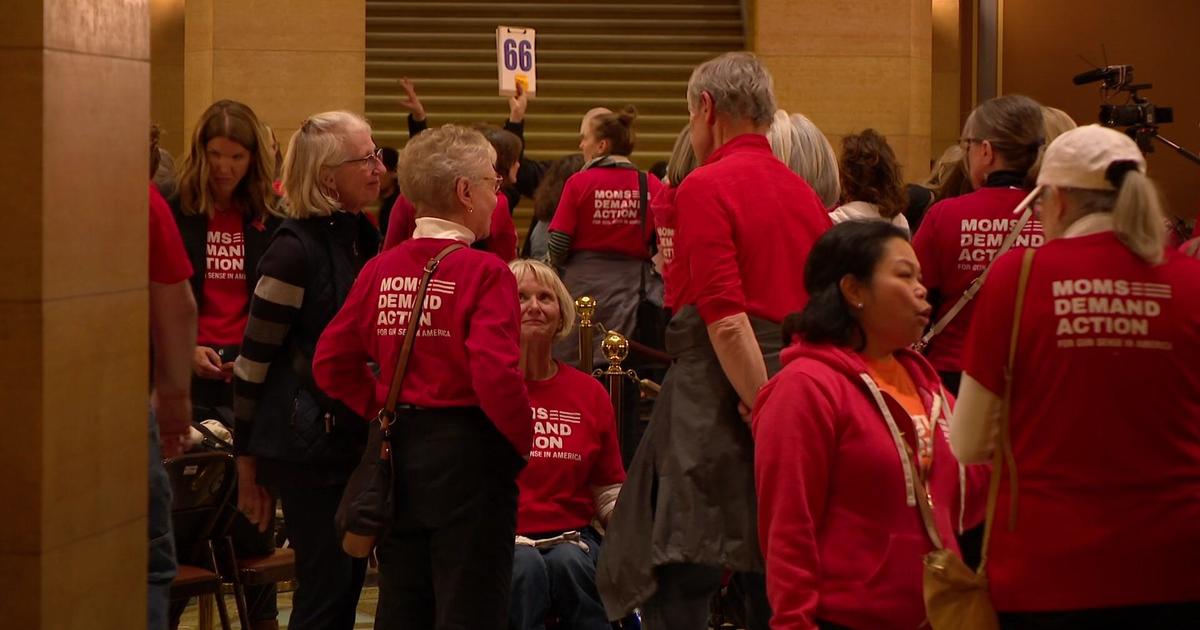Advocates, Lawmakers Cheer Sexual Assault Prevention Bill
ST. PAUL, Minn. (AP) — A push to strengthen sexual assault policies at Minnesota colleges is moving through the Legislature, with advocates saying it will provide more options for victims. Some schools already have strong policies, but the bill would extend best practices across Minnesota, said author Rep. Marion O'Neill, R-Maple Lake. Here's a look at the legislation:
WHAT WOULD THE BILL DO?
Colleges will have a lot more responsibilities if O'Neill's bill becomes law. They'd have to provide sexual assault prevention and awareness training to students shortly after they started college. Schools would be required to enter into agreements with local law enforcement to better spell out how they'd share information and work together in cases of sexual assault. They'd have to disclose how many reports of sexual assault they get every year, how many were investigated and how many resulted in discipline.
WHY NOW?
O'Neill said the idea for the bill came after a discussion with her daughter, a high school student who takes classes at St. Cloud State University and went through school training on sexual assault prevention. "I wasn't sure if every campus had done that, and in fact they weren't doing that," O'Neill said. The topic has also attracted nationwide attention in recent years, as schools come under increased scrutiny over how they handle reports. President Barack Obama's administration started a campaign last year to end sexual assault on college campuses.
HOW PREVALENT IS SEXUAL ASSAULT IN COLLEGE?
The White House cites research that claims one in five women is sexually assaulted in college, typically in her first two years in school by someone she knows. In Minnesota, a 2013 survey of students from 29 postsecondary institutions found nearly 5 percent of female students and about 1 percent of male students reported being sexually assaulted in the 12 months before the survey. The survey, conducted by the University of Minnesota's Boynton Health Service, also found more than one in eight students reported sexually assaulting or inflicting domestic violence on someone else in their lifetime.
WHAT DO SCHOOLS ALREADY DO?
Federal law already requires colleges to make sexual assault training available and report some statistics on it. And some Minnesota colleges already do what O'Neill's bill would require — the University of Minnesota, for example, already lets students report sexual assault anonymously, said Kim Hewitt, the school's Title IX coordinator. Many schools in the Minnesota State Colleges and Universities system already work with local law enforcement agencies around sexual assault, said Toyia Younger, MnSCU's associate vice chancellor for student affairs.
WHAT DO STUDENTS THINK?
Student associations at MnSCU and the University of Minnesota support the bill, as do members of the university's fraternities. The Minnesota Student Association has worked closely with O'Neill on the legislation and its members have testified for the bill. That group, which represents University of Minnesota students, has made sexual assault prevention a priority this year.
HOW LIKELY IS THE BILL TO BECOME LAW?
The House bill and its Senate companion have cleared several committee stops. O'Neill and other advocates working on the legislation said they've heard few major concerns and have ironed out any worries in committee. It's not clear when the bill could get a floor vote, but O'Neill points to the bipartisan list of co-authors as evidence it has a good chance of moving to Gov. Mark Dayton's desk.
(© Copyright 2015 The Associated Press. All Rights Reserved. This material may not be published, broadcast, rewritten or redistributed.)



